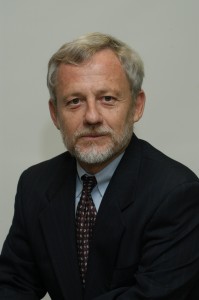
Richard E. Lyons has served as a professor of management, department chair, instructional dean, corporate trainer, faculty and staff developer, and independent consultant. His grounding in sound research and quality management practices, as well as deep learning from his varied experiences, has enabled him to exceed expectations of clients systematically. Richard launched his consulting and presentation practice in 1999, shortly after the publication of his first book, The Adjunct Professor’s Guide to Success. He has since authored three other books – Teaching College in an Age of Accountability, Success Strategies for Adjunct Faculty, and Best Practices for Supporting Adjunct Faculty. His extensive research on these topics and familiarity with best practices that align with that research undergird his consulting. The strategies that he espouses have been well received not only by clients, but also by audiences in dozens of presentations at varied academic conferences. Richard has presented on the campuses of community and state colleges, universities and proprietary institutions, in three countries. Besides traditional institutions, these have included historically Black colleges and universities, historically women’s institutions, and those that serve significant populations of Native American, Hispanic and other diverse populations. He also regularly utilizes webinars to deepen workshop participants’ mastery of critical learning outcomes. His travel experiences in over forty countries enable him to address issues in a global, futuristic context – a factor of increasing importance at many institutions. Active throughout his career in professional organizations, Richard presently serves on the board of the North American Council for Staff, Program and Organizational Development [NCSPOD]. Richard earned his B.A. in Management and M.S. in Business Education at Western Kentucky University, and his doctorate in college teaching and curriculum at the University of Central Florida. |
Specialties:
|
Tag Archives: decision making
Chuck McIntyre
 Chuck McIntyre of northern California, has consulted and worked in higher education planning, research, evaluation, finance and management since 1971. Until 1999, he worked as Director of Research and Analysis in a state office of higher education and has consulted with colleges across the U.S., in the United Kingdom and Canada since the early 1999s. His recent engagements have been in the areas of strategic and facilities planning, emphasizing enrollment forecasting, planning, and management – using computer simulation models, recently-released 2000 Census data, and other sources and tools. Chuck McIntyre of northern California, has consulted and worked in higher education planning, research, evaluation, finance and management since 1971. Until 1999, he worked as Director of Research and Analysis in a state office of higher education and has consulted with colleges across the U.S., in the United Kingdom and Canada since the early 1999s. His recent engagements have been in the areas of strategic and facilities planning, emphasizing enrollment forecasting, planning, and management – using computer simulation models, recently-released 2000 Census data, and other sources and tools.
ENROLLMENT FORECASTING, SIMULATION, AND MANAGEMENT Since the early 1990s, Chuck’s work has emphasized enrollment planning and management. In 1993, he developed an econometric model that is currently used in long-range enrollment forecasting for the capital planning at local districts in a state system. He conducted a study for the Maricopa Community Colleges in 1995 on the enrollment-impact of tuition and fees; results have been used by the district for long-range policymaking. Chuck then worked, in 1996, with Lincoln University on a computer model to simulate a variety of enrollment management initiatives in marketing, admissions, registration, and student retention, all designed to tie into budgeting models. Chuck also completed a 1997 study of Pima Community College’s past and future enrollment patterns for its use in planning. In Spring 1997, he was published in Jossey-Bass’ New Directions for Institutional Research, and has spoken on enrollment management at national conferences like the American Association for Community Colleges (SCUP), Association for Institutional Research (AIR), Society for Needs assessmentCollege and University Planning (SCUP), and the Consortium for Community College Development (CCCD). In Fall 1998, Chuck spoke at the European AIR in Spain about use of computer models to forecast enrollments and plan budgets. Also in 1998, he conducted an enrollment simulation and planning (ESP) study at Lansing Community College and, in 1999, he conducted ESP studies at Portland, Mt. Hood and Lane Community Colleges in Oregon and for the State Office of Michigan Community Colleges. In Fall 1999, AACC published Chuck’s book on Enrollment Simulation and Planning. Since then, Chuck has worked on ESP projects at colleges in Oregon, Michigan, Massachusetts, California, Washington, and Texas. STRATEGIC PLANNING Recent engagements by Chuck with Palm Desert and San Mateo (California) and Austin (Texas) Community Colleges have involved a form of strategic planning – learning-centered strategic planning – that emphasizes efforts by these institutions to concentrate in a variety of ways on student learning. Chuck spoke about this technique at a SCUP regional conference in 2002. Chuck’s work in college planning and evaluation spans nearly three decades, beginning in 1974 with an Exxon Education Foundation grant for research on the book Planning Colleges for the Community, published by Jossey-Bass. In 1978, he directed work, supported by a Vocational Education Act grant, on assessments of community educational needs; and in 1981, he was awarded a four-year Fund for Improvement of Postsecondary Education grant to develop new ways to tie college planning and evaluation to accreditation. Since then, Chuck helped develop several long-range plans for a state Board of Governors, has written a number of articles and monographs on college planning, and has directed numerous workshops and symposia on the topic using techniques such as Charrette, Delphi, Nominal Group Technique, and Total Quality Improvement. He has spoken frequently on planning at national and regional conferences like AACC, SCUP, AIR, Pacific Northwest Association for Institutional Research and Planning, Western and Southwestern Regional SCUP, Southeastern Association for Community College Research, California Community College Board of Governors, California AIR, Community College League of California, California Community College Trustees, and California Research and Planning Group, and at many local colleges. As Director of Research and Analysis, he was responsible for numerous state-level planning and evaluation projects, including environmental scanning and futures research projects, one of which was honored in 1996 with a Research White Paper grant from AACC and the Sloan Foundation, and published in Core Issues in Community Colleges (AACC, 1997). FACILITIES PLANNING During 2000, 2001 and 2002, Chuck conducted projects in long-range facilities planning for Mt. San Antonio (CA), Mt. Hood (OR), and Austin (TX) in preparation for capital financing bond elections. These projects involved computer modeling of facility needs, formulation of new space and utilization standards, and new kinds of classroom configurations. He currently is involved in a similar project for College of the Desert (CA) and has an article on the topic forthcoming in the Spring 2003 issue of the Journal of Applied Research in the Community College. Earlier, in 1990-91, Chuck designed and implemented a computer model to project 15-year facility needs for a state system of community colleges; the resulting Board of Governors’ Long-Range Capital Outlay Plan was used to plan and allocate capital outlays for nearly ten years. POLICY RESEARCH Over two decades, Chuck conducted and directed numerous policy research projects for a state office about community college transfer, tuition, fees and financial aid, student services and other topics. His article on transfer performance was published in Research in Higher Education in 1989. Other work includes policy research on such topics as the impact of fees on enrollment (1993), growth funding formulas (1996), and welfare reform (1997), among others. Also in 1997, Chuck completed four technical papers for the 2005 Task Force, a long-range planning effort about future college needs and funding, sponsored by a state Board of Governors and Chancellor. Chuck served on the Research Commission of the AACC between 1997 and 2000. COMPUTER MODELING For the past decade, Chuck also has engaged in many computer modeling projects, designing, developing and implementing planning and decision-support tools for colleges and universities. In 1989, he developed a computer model to forecast college faculty replacement, which was used in human resource planning and presented that year at SCUP. Between 1990 and 1995, Chuck directed a consortium of three dozen community colleges in the U.S., United Kingdom, and Canada in developing computer-aided planning (CAP) models. This work-involving model design, development, quarterly workshops with participants, and testing–was to produce robust and systematic computer simulation models to help colleges plan and make policy decisions. During the CAP project, Chuck held a 1993 planning symposium for staff from community colleges throughout England, Scotland, Wales and Ireland. Among colleges participating in the CAP project were Bilston in Birmingham (England), Lethbridge in Alberta (Canada), Kapiolani (Honolulu), and three-dozen other colleges from the mainland U.S. OTHER EXPERIENCE AND ACADEMIC TRAINING Earlier in his career, as Director of Analytical Studies with a state office of higher education, Chuck directed the design of the office’s first computer-based management information system and was responsible for the design and implementation of two financing systems by which the state office allocated funds to local districts. Chuck also has worked on projects assessing the economic impact of colleges, and in 2001 he helped AACC evaluate a new cost-benefit model for this purpose. Chuck’s academic training is in economics: PhD from University of California, MA from California State University; and in anthropology: BA from University of Colorado. He has taught undergraduate microeconomics and graduate higher education finance at the California State University. Prior to working in higher education, Chuck played professional baseball for the Milwaukee Braves organization. |
Specialties:
|
Do You Think I am Indecisive? (Decision Making)
Designed For:
 Everyone who works for a living-no matter what the organization or industry-education, law, banking, tech corporations, this workshop is ideal for everyone including managers and executives.
Everyone who works for a living-no matter what the organization or industry-education, law, banking, tech corporations, this workshop is ideal for everyone including managers and executives.
Why:
Indecisive? Unsure if you are or aren’t? If so, then this workshop is for you!
Outcomes:
- Understand the relationship between your social style and your decision making style
- Understand the subtle difference between problem solving and decision making
- Lead a team to make shared decisions through consensus
- Hold an individual, team or organization accountable for decisions they make
- Conduct an ethics double-check before making decisions
- Apply and teach others what you’ve learned
Materials Required:
This workshop may require books, materials, online assessments, or the use of proprietary software which typically will be included in the cost of the workshop.
Customize Your Training:
Company of Experts, Inc. delivers its workshops in a variety of ways: on-site, hybrid, or online; providing users with the option to decide which learning method works best for their organization and/or individual.
To learn more about the location, price, availability, or to register for this workshop, please email Kathy at Kathy@CompanyofExperts.net
Space is limited, guarantee yourself a spot today!
Workshops
| Workshop FAQs | Event Calendar | Contact Us |
Company of Experts, Inc. is known for delivering exceptional training and consulting services to hundreds of organizations, groups, and individuals in corporate and academic sectors and has received 5-Star ratings for their on-site trainings and programs.
Company of Experts, Inc. provides its users with the flexibility to complete their training by offering their renowned workshops in a variety of ways: on-site, hybrid, or online; providing users with the option to decide which learning method would work best for their organization and/or individual.
Company of Experts now offers online registration. Don’t want to register online? Company of Experts has created flexible registrations for you…
Phone: We also process registrations taken over the phone. Just call our office (702) 228.4699 and we will be happy to process your order over the phone.
Missing something? Company of Experts can customize trainings – just for you!


